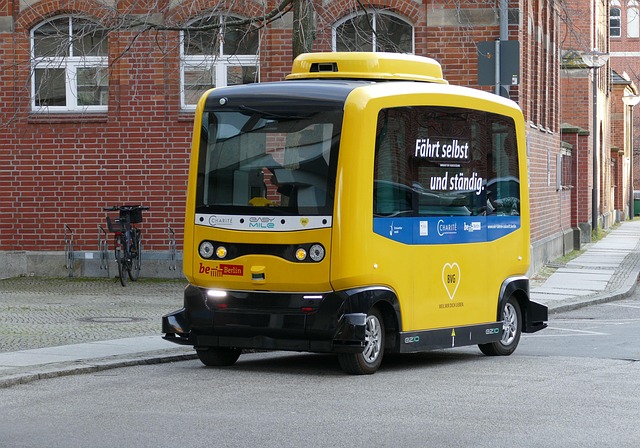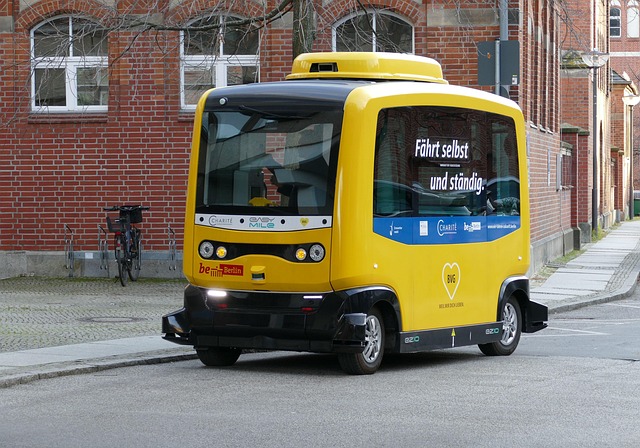The rapidly growing autonomous driving market is led by automotive giants and tech companies like Tesla, offering advanced driver-assistance systems (ADAS) and Autopilot features. Select Autonomous Vehicles (SAVs) prioritize safety with cutting-edge technology, improved traffic flow, reduced accidents, and enhanced urban accessibility. These vehicles leverage AI, advanced sensors, cameras, and radar for accident prevention, ensuring peace of mind. SAVs also promise to revolutionize public transportation through autonomous shuttles, enhancing mobility and safety. With extended driving ranges and sustainable practices, leading manufacturers address ethical concerns and contribute to a greener future. Focused on comfort and convenience, these vehicles offer relaxed journeys with high-quality interiors and integrated infotainment systems. Navigating regulatory hurdles requires collaboration between industry, regulators, and tech experts for robust standards in liability, data privacy, and cybersecurity. The integration of SAVs into public transport presents promising yet challenging prospects, with advancements in sensor technology and AI algorithms crucial for seamless incorporation.
“The future of driving is here with the rise of driverless cars, revolutionizing the way we navigate. In this article, we explore the best brands leading the charge in select autonomous vehicles (SAVs). From market dominance to safety features, range, user experience, regulatory compliance, and environmental benefits, these brands are redefining mobility. Discover how they’re transforming roads and shaping a sustainable future through cutting-edge autonomous driving technology.”
- Market Leaders in Autonomous Driving Technology
- Safety Features: Ensuring Peace of Mind
- Range and Efficiency: Longevity on the Road
- User Experience: Comfort and Convenience
- Regulatory Compliance and Future Prospects
- Environmental Impact: Sustainable Mobility
Market Leaders in Autonomous Driving Technology

The market for autonomous driving technology is rapidly evolving, with several automotive giants and tech companies emerging as leaders in this innovative space. In terms of select autonomous vehicles, brands like Tesla have paved the way with their advanced driver-assistance systems (ADAS) and robust Autopilot features, which offer a glimpse into the future of transportation. These vehicles leverage a combination of sensors, cameras, and artificial intelligence to navigate roads, making driving safer and more efficient.
One of the key advantages of driverless cars, in the context of smart city mobility, is their potential to improve traffic flow, reduce accidents caused by human error, and enhance overall urban accessibility. Electric autonomous vehicles, in particular, are gaining traction due to their environmental benefits and growing popularity in the shift towards sustainable transportation. With advanced pedestrian detection for cars, these vehicles can navigate bustling cities, ensuring safety for both passengers and pedestrians alike.
Safety Features: Ensuring Peace of Mind

When considering the best driverless car brands, safety features should be at the forefront of your mind. Autonomous vehicles, like those equipped with Select Autonomous Vehicles’ cutting-edge technology, are designed to ensure peace of mind for both passengers and other road users. These advanced systems leverage a.i. in vehicle safety to prevent accidents, utilizing sensors, cameras, and radar to detect potential hazards and navigate around them safely.
The self-driving technology benefits extend beyond individual vehicles; they also have the potential to revolutionize public transport. Imagine autonomous shuttles navigating through urban centers or rural areas, providing accessible and efficient transportation options. This agricultural innovation with AI isn’t just a futuristic concept—it’s becoming a reality, reshaping how we think about mobility and enhancing safety on our roads.
Range and Efficiency: Longevity on the Road

The range and efficiency of driverless cars are pivotal aspects that determine their longevity on the road. When considering select autonomous vehicles, it’s clear that top brands prioritize energy-efficient engines and advanced battery technology to offer longer driving ranges. This ensures that self-driving cars can navigate across towns, highways, and even remote areas without constant recharging, making them practical for daily use. Moreover, efficient designs and intelligent navigation systems contribute to reduced energy consumption, aligning with the growing interest in autonomous delivery services and promoting a more sustainable future of autonomous transportation.
The focus on range and efficiency also intersects with driverless car ethics. As these vehicles become more integrated into society, ensuring they can operate for extended periods without compromising safety or performance is crucial. This not only enhances user experience but also addresses concerns about the environmental impact of frequent charging stops. By combining advanced propulsion systems with sophisticated software, leading driverless car manufacturers are paving the way for a seamless and eco-friendly future on our roads, where self-driving cars can handle long journeys with ease, reflecting the evolving landscape of how do self-driving cars work?
User Experience: Comfort and Convenience

When it comes to user experience, comfort and convenience are paramount in the realm of Select Autonomous Vehicles (SAVs). These self-driving cars for sale prioritize passenger well-being by offering a serene and relaxing environment. Advanced seating systems with adjustable settings, climate control, and high-quality interiors ensure travelers remain comfortable during even the longest journeys.
Moreover, SAVs integrate cutting-edge infotainment systems that provide a wide range of entertainment options. From streaming music and movies to hands-free communication, these features enhance the overall travel experience, making autonomous public transport not just safe but also enjoyable. The focus on comfort and convenience sets these vehicles apart, ensuring users arrive at their destinations feeling refreshed and rejuvenated.
Regulatory Compliance and Future Prospects

The journey towards fully autonomous vehicles is a complex path that requires meticulous navigation through stringent regulations. As driverless car companies strive to bring their innovations to market, Regulatory Compliance has emerged as a pivotal aspect shaping the future of Select Autonomous Vehicles (SAVs). Ensuring safety, data privacy, and ethical decision-making in self-driving cars is no easy feat, given the myriad of dynamic scenarios these vehicles must navigate. The automotive industry, regulators, and technology experts are working collaboratively to establish robust standards addressing liability issues with self-driving cars, particularly as they pertain to accident responsibility, data ownership, and cybersecurity threats.
Looking ahead, the prospects for autonomous public transport are promising yet challenging. Integrating SAVs seamlessly into existing transportation infrastructure demands a multifaceted approach. This includes developing advanced sensor technologies, refining artificial intelligence algorithms, and fostering public trust in these groundbreaking vehicles. As research progresses, we can expect to witness even more sophisticated driverless car companies emerging, pushing the boundaries of what’s possible while navigating regulatory landscapes to ensure a safe and efficient future for autonomous mobility.
Environmental Impact: Sustainable Mobility

The advent of driverless cars promises to revolutionize the automotive landscape, not just through enhanced safety and accessibility features for self-driving cars but also by significantly reducing our environmental footprint. As we transition towards sustainable mobility, Select Autonomous Vehicles are at the forefront of this eco-friendly movement. These brands prioritize consumer protection in automation while ensuring that their technologies adhere to stringent legal frameworks for autonomous driving.
By leveraging disruptive tech in the auto industry, they strive to create a greener future. The efficient, electric-powered propulsion systems and advanced fuel economy of these self-driving cars contribute to lowering carbon emissions and mitigating climate change. Moreover, the streamlined production processes and recycling capabilities of leading autonomous vehicle manufacturers further bolster their commitment to environmental stewardship, ensuring that the mobility of tomorrow is not just safe and accessible but also sustainable.
When considering the best driverless car brands, it’s evident that several key players are shaping the future of autonomous driving. Market leaders like Tesla, Waymo, and Cruise have pioneered advanced safety features, ensuring passengers can enjoy their journeys with peace of mind. These vehicles offer impressive range and efficiency, crucial for long-distance travel, while prioritizing user experience through intuitive interfaces and comfortable interiors. As regulatory compliance becomes increasingly important, these brands are at the forefront of adhering to safety standards, paving the way for widespread adoption. Furthermore, their focus on environmental sustainability makes select autonomous vehicles a game-changer in promoting sustainable mobility, ultimately contributing to a greener future.
